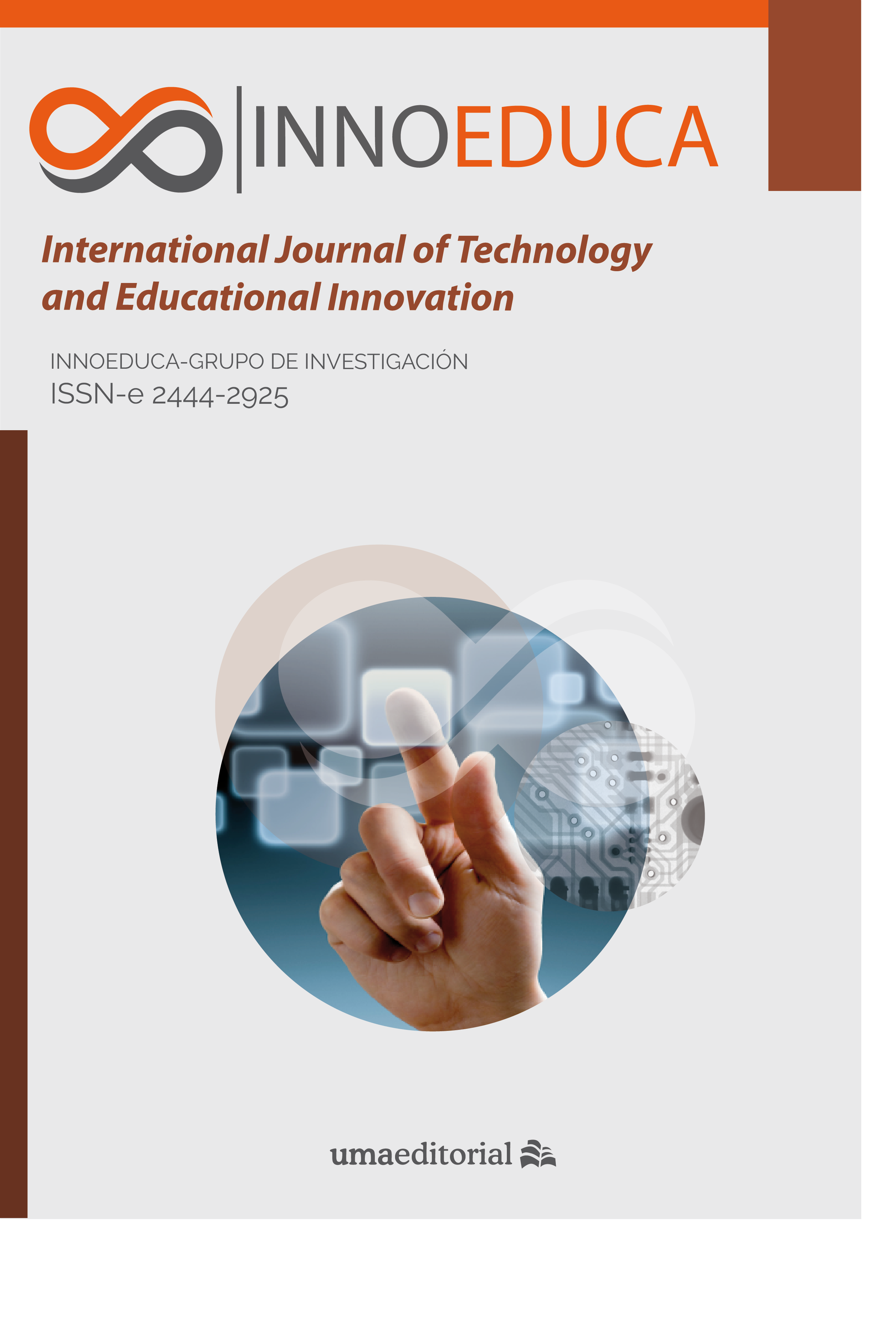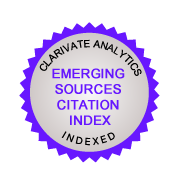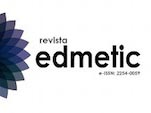Peer assessment through blogs in pre-service teacher training. Student ratings
DOI:
https://doi.org/10.24310/innoeduca.2020.v6i1.6629Abstract
Peer evaluation online presents some advantages that may be profitable to improve the teaching-learning process in university students, especially in the training of pre-service teachers. The present research proposes the following aims: a) to implement an online peer assessment experience in a subject of the Early Childhood Education and Primary Education degrees; b) to evaluate the students' assessment of this experience. University students (N=36) published their work on a blog during the course to be evaluated by their classmates. After the experience, the evaluation of the online peer assessment students process was obtained through the application of the questionnaire designed by Wen and Tsai (2006). The results suggest a) that the students assessed positively the peer evaluation experience; b) that the online format does not seem to be a particularly relevant advantage concerning the pencil and paper format; c) that the students prefer that both the teachers and the students themselves participate in the preparation of the evaluation criteria; d) that students prefer an evaluation modality in which both evaluators and people who are evaluated know the identity of the person who evaluates and performs the work, instead of an anonymous evaluation. The teachers’ evaluation experience is positive, although in future experiences it is proposed to involve the students in the design of the rubrics and evaluation criteria as well as to carry out the evaluation process in the classroom, instead of doing it online.
Downloads
Metrics
References
Adachi, C., Tai, J.H.M., & Dawson, P. (2018). Academics’ perceptions of the benefits and challenges of self and peer assessment in higher education. Assessment & Evaluation in Higher Education, 43(2), 294-306. doi: 10.1080/02602938.2017.1339775
Alonso, R.R., Plaza, I.R., & Orfali, C.H. (2019). Barriers in teacher perception about the use of technology for evaluation in Higher Education. Digital Education Review, (35), 170-185. doi: 10.1344/der.2019.35.170-185
Arribas, J.M, Manrique, J.C., & Tabernero, B. (2016). Instrumentos de evaluación utilizados en la formación inicial del profesorado y su coherencia para el desarrollo de competencias profesionales en los estudiantes: visión del alumnado, egresados y profesorado. Revista Complutense de Educación, 27(1), 237-255. doi: 10.5209/rev_RCED. 2016.v27.n1. 45724
Briz-Ponce, L., Juanes-Méndez, J.A., García-Peñalvo, F.J., & Pereira, A. (2016). Journal of Medical Systems, 40, 136. doi: 10.1007/s10916-016-0487-4
Fu, Q.K., Lin, C.J., & Hwang, G.J. (2019). Research trends and applications of technology-supported peer assessment: a review of selected journal publications from 2007 to 2016. Journal of Computers in Education, 6(2), 191-213. doi: 10.1007/s40692-019-00131-x
Gargallo, B., Sahuquillo, M.P., Verde, I., & Almerich, G. (2018). ¿Qué ocurre cuando los profesores utilizan métodos centrados en el aprendizaje? Efectos en los enfoques de aprendizaje, en las capacidades del alumno y en su percepción del entorno de aprendizaje. Revista de Educación, 382, 163-197. doi: 10.4438/1988-592X-RE-2018-382-396
Hinojo, F.J. Aznar, I.A., Romero, J.M., & Marín, J.A. (2019). Influencia del aula invertida en el rendimiento académico. Una revisión sistemática. Campus Virtuales, 8(1), 9-18.
Koehler, M., & Mishra, P. (2009). What is technological pedagogical content knowledge (TPACK). Contemporary issues in technology and teacher education, 9(1), 60-70.
Li, H.L., Xiong, Y., Zang, X.J., Kornhaber, M.L., Lyu, Y.S., Chung, K.S., et al. (2016). Peer assessment in the digital age: A meta-analysis comparing peer and teacher ratings. Assessment & Evaluation in Higher Education, 41(2), 245–264. doi: 10.1080/02602938. 2014.999746
McGarr, O., & Clifford, A.M. (2013). ‘Just enough to make you take it seriously’: exploring students’ attitudes towards peer assessment. Higher education, 65(6), 677-693. doi: 10.1007/s10734-012-9570-z
Medland, E. (2016) Assessment in higher education: drivers, barriers and directions for change in the UK. Assessment & Evaluation in Higher Education, 41(1), 81-96. doi: 10.1080/02602938.2014.982072
Panadero, E., & Brown, G.T.L. (2017). European Journal of Psychology of Education, 32(1), 133-156. doi: 10.1007/s10212-015-0282-5
Pereira, D., Flores, M.A., & Niklasson, L. (2016). Assessment revisited: a review of research in Assessment and Evaluation in Higher Education. Assessment & Evaluation in Higher Education, 41(7), 1008-1032. doi: 10.1080/02602938.2015.1055233
Reinholz, D. (2016). The assessment cycle: a model for learning through peer assessment. Assessment & Evaluation in Higher Education, 41(2), 301-315. doi: 10.1080/026 02938.2015.1008982
Rodríguez Gómez, G., Ibarra Saiz, M.S. & Cubero Ibáñez, J. (2018). Competencias básicas relacionadas con la evaluación. Un estudio sobre la percepción de los estudiantes universitarios. Educación XX1, 21(1), 181-208. doi: 10.5944/educXX1.14457
Rotsaert, T., Panadero, E., & Schellens, T. (2018a). Peer assessment use, its social nature challenges and perceived educational value: A teachers’ survey study. Studies in Educational Evaluation, 59, 124-132. doi: 10.1016/j.stueduc.2018.07.001
Rotsaert, T., Panadero, E., & Schellens, T. (2018b). Anonymity as an instructional scaffold in peer assessment: its effects on peer feedback quality and evolution in students’ perceptions about peer assessment skills. European Journal of Psychology of Education, 33(1), 75-99. doi: 10.1007/s10212-017-0339-8
Sosa Díaz, M.J., & Palau Martín, R. (2018). Flipped Classroom para adquirir la competencia digital docente: una experiencia didáctica en la Educación Superior. Pixel-Bit, 52, 37-54. doi: 10.12795/pixelbit.2018.i52.03
Vanderhoven, E., Raes, A., Montrieux, H., Rotsaert, T., & Schellens, T. (2015). What if pupils can assess their peers anonymously? A quasi-experimental study. Computers & Education, 81, 123-132. doi: 10.1016/ j.compedu.2014.10.001
Van Zundert, M., Sluijsmans, D., & Van Merriënboer, J. (2010). Effective peer assessment processes: Research findings and future directions. Learning and Instruction, 20(4), 270-279. doi: 10.1016/j.learninstr uc.2009.08.004
Wen, M.L., & Tsai, C.C. (2006). University students’ perceptions of and attitudes toward (online) peer assessment. Higher Education, 51(1), 27-44. doi: 10.1007/s10734-004-6375-8
Downloads
Published
How to Cite
Issue
Section
License
All contents published by Innoeduca. International Journal of Technology and Educational Innovation are subject to Creative Commons Attribution-Nocomercial-NoDerivatives 4.0 International License, whose complete text can be consulted at https://creativecommons.org/licenses/by-nc-nd/4.0/legalcode. Thus, copying, distribution, public communication, derivative works and commercial use of content are permitted as of the aforementioned issue provided that the source and the author of the text are cited.
It is the responsibility of the authors to obtain the necessary permits for images that are subject to copyright.

This work is licensed under a Creative Commons Attribution-NonCommercial-NoDerivatives 4.0 International License.









1.jpg)


242.png)







